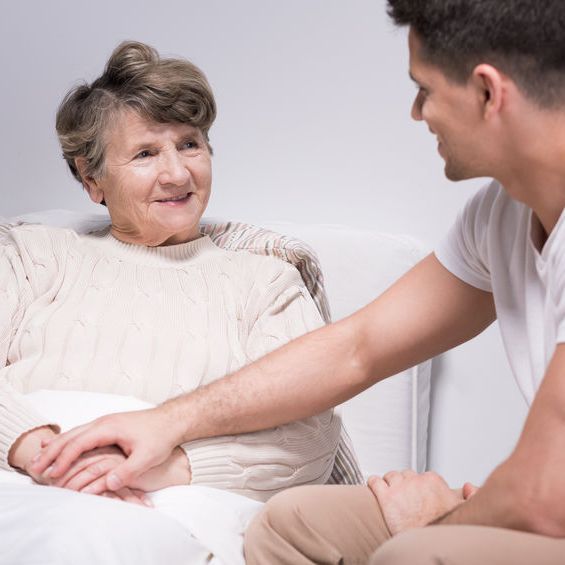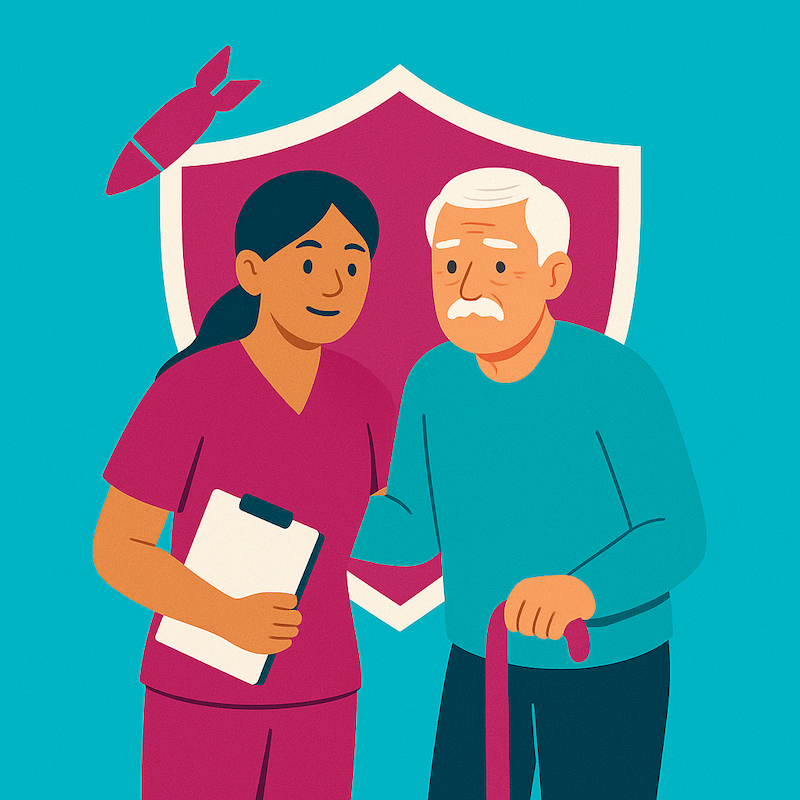Caregiver Essentials: Things You Need to Have for In-Home Caregiving
iSavta | 05.10.2020

Caregiving is a tough job and you need all the help that you can get from these caregiver essentials that you NEED to have in your caregiving work.
Must-haves
These must-haves might already be available in the house with or without a senior patient. But make sure that you have all these so you won’t have to scramble for it if you need it. Better to put it in the same room as your patient and make it accessible always.
Also, you have to check batteries and try to check if they are working well. Some equipment may need calibration from time to time. You can follow the product’s manual on how to do the calibration. And lastly, include the consumables like lancets and glucometer strips when you buy your supplies.
- Thermometer - The temperature of the person tells you if he or she is feeling well or has an infection, among other things. So it is beth to have thermometer/s available around the house.
- Stethoscope - The stethoscope is used by health care workers to monitor a lot of things: listening to lung sounds, bowel sounds, heartbeats or heart sounds, or checking blood pressure with a manual blood pressure monitor.
- Blood Pressure Measurement Equipment - This may come in manual or digital types. Some health care professionals prefer to have both because sometimes one or the other might have an error.
- Pulse Oximeter - A pulse oximeter is a small gadget clipped onto the patient’s finger that checks the pulse rate of a person and also it tells you the oxygen saturation. This is an inexpensive gadget that is easy to find in pharmacies or online shops. An oximeter is also very helpful if you are monitoring the patient’s vital signs. And due to COVID pandemic, this is a highly recommend equipment to have at home to check on the oxygen levels of a person.
- Glucometer - Even if your patient is not a diabetic, it is best to have this glucometer handy. The elderly are prone to different medical challenges that may also include super low insulin levels or a sudden spike resulting in a very high blood sugar level.
Supplies for the Elderly
The seniors need to be clean and comfortable in their beds or in their bedrooms. So all these supplies will help them stay like that for the rest of the day or evening. Stock these supplies so you would have them whenever you need them.
- Adult Diapers - The adult diapers can be used at home or in transit. It is beth to check them so you will know if you need to change to a new one.
- Incontinence Pads - These pads are not only saving you from soiling the bed sheets but also it will help you to transfer or move the patient. This comes in packs so it comes in cheap and can you last you for a week or so.
- Anti Bed Sore Cream - You want to make your patient comfortable so this barrier cream can really help avoid or lessen bed sores. These are also found in local stores and pharmacies and are very affordable.
- Bedpan - Sometimes, your patient may not be able to get up right away and the bedpan is a lifesaver.
- Urinal - Male patients may feel the need for this especially if they cannot get up right away or if they cannot control their bladder. Some females also opt to use this especially if they have bladder issues.
The Elder’s Extra Helpers
Most elders are also bed-ridden or have limited mobility already. So these 3 things will help them call for help or help them do things for themselves.
- Bell or Bed Alarm
- Mobile Toilet or Bedside Commode
- Remote Controls
For Yourself as Caregiver
As the caregiver, do not forget these things for yourself. Make sure you are also clean, comfortable, sanitized, and can be quick in your movements.
- Scrubs
- Watch
- Proper Footwear
- Chart
The list continues for all the things that you need in taking care of a senior patient. You may also ask your patient’s doctors about what you need to have in the house. Again, always remember that the core of caregiving is to have the best quality of life for your patient.











